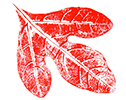Helianthus hirsutus, a.k.a rough sunflower, hairy sunflower, or stiff-haired sunflower, is a native wildflower in much of the eastern and central U.S. Like its common names suggest, rough sunflower has hairy stems and leaves that give the plant a very rough texture. This rough texture helps make the plant relatively deer resistant. Deer may occasionally browse it, but will often choose other “softer” plants if they are available.

Rough sunflower grows in sunny, open areas, but can also take a little shade. It prefers dry to medium soils and can grow anywhere between 2.5 and 6 feet tall. Taller plants may flop over in garden settings, but will still bloom. In late summer and fall (starting around mid-July in Kentucky), rough sunflower plants will be covered in multiple bright yellow sunflower heads. Each “flower” is actually a group of individual flowers that function as a single flower. Rough sunflower often blooms for a month or more.
Sunflowers, in general, are highly attractive to pollinators and rough sunflower is no exception. A wide diversity of bees including honey bees, bumble bees, sweat bees, mining bees, leaf cutter bees and many others will actively work the flowers to gather the abundant nectar and pollen. Quite a few species of native bees are obligate pollen specialists on sunflower species, which simply means that their larvae can only eat sunflower pollen in the same way that monarch butterfly caterpillars can only eat milkweeds.
In addition to bees, rough sunflower is also highly attractive to many different species of butterflies and skippers. Sunflowers, including rough sunflower, are a great source of late season nectar for butterflies that are migrating or are preparing to lay the last generation of eggs for the season. Rough sunflower is also a host plant for the caterpillars of several butterfly and moth species including painted ladies, two checkerspot species, and the cream-bordered dichomeris. Many other flower visitors and pollinators including flower flies, bee flies, soldier beetles can also be found visiting rough sunflower flowers.
Once the flowers go to seed, goldfinches, sparrows, and other birds will move in and begin devouring the seeds. Leaving the seed heads on the plants throughout the winter will provide a natural “bird feeder” for a variety of songbirds, and even quail if you are lucky enough to have them on your property.
Rough sunflower spreads both by seeds and through rhizomes. The rhizomes produce lots of runners and mean that rough sunflower can be very aggressive. It is not recommended for small garden areas where plants need to be “well-behaved” and to share the space with other plants in the garden. Rough sunflower is best suited for larger pollinator plantings where it has room to spread and is in competition with other aggressive plants. Sunny hillsides that need erosion control are also potentially good candidates for rough sunflower plantings because the rhizomes will help it spread and stabilize the soil.

This article was part of Shannon’s original Kentucky Pollinators and Backyard Wildlife blog which evolved into the blog for Backyard Ecology.

Backyard Ecology: Exploring Nature in Your Backyard
Nature isn’t just “out there.” It’s all around us, including right outside our doors. Hi, my name is Shannon Trimboli, and I am the host of Backyard Ecology. I live in southcentral Kentucky and am a wildlife biologist, educator, author, beekeeper, and owner of a nursery specializing in plants for pollinators and wildlife conservation. I invite you to join me as we ignite our curiosity and natural wonder, explore our yards and communities, and improve our local pollinator and wildlife habitat. Learn more or subscribe to my email list at www.backyardecology.net.

Leave a Reply